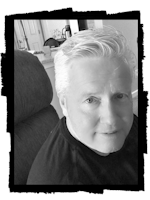The New Year is traditionally a time for resolutions. People take inventory of themselves and decide what needs changing. Perhaps they think a new diet is in order, or maybe joining a gym might help them lose some unwanted pounds. Those things are well and good and I’m not diminishing their importance. However, as police officers I think taking stock of our mindset is a priority. Those other things will help us to win on the street, but if we don’t have the will to win, if our mindset isn’t where it should be, then being able to run a marathon or bench press 400 pounds won’t matter. Henry Ford said it best, “Whether you think you can, or you think you can’t - you’re right.”
The power of the mind is so important that once you realize how to harness it your job becomes that much easier. I taught street survival for years, and one of the blocks of instruction was the importance of visualization and rehearsal. Visualization is a technique often used by successful business execs and professional athletes. The businessman visualizes himself in a board meeting making his presentation. He sees not only the big picture, but the individuals as well. He’ll know his target audience, their likes and dislikes, strengths and weaknesses. In order to be successful, he’ll consider any questions that may pop up and plan contingencies if a point is not well received. Furthermore, the exec will rehearse his material, to include visual aids and even mannerisms. He’ll see himself in the moment, even down to the clothes he’ll be wearing.
Much like the businessman, the pro athlete does the same. The night or morning of a game the athlete will visualize his performance, seeing himself scoring a touchdown or meeting a pitch squarely and driving it out of the park. Visualization builds confidence, and rehearsal builds muscle memory, which also means quicker reaction. In police work, a swift reaction means possibly saving a life.
How does a cop visualize? Simply by critiquing himself and others on how a call or situation was handled. Nothing is ever boilerplate; there are no templates that work for each incident. But there are things that are common that should be a trigger for our reaction. You know what I’m talking about—you stop a guy on the street and his eyes begin to dart about - you know from past experience the guy is about to rabbit. If you’ve mentally rehearsed what to do when this happens, you can take control before he tries to bolt.
Consider traffic stops. When you pull a car over and see the driver moving about quickly, experience should tell you he’s trying to hide something or maybe accessing a weapon. Mental rehearsal dictates an even more cautious approach. Every time you finish a stop or handle a complaint, you should be analyzing the manner in which you handled it. Could I have acted differently? Did I use the proper tactics? If it was a felony, did I put my colleagues or myself in jeopardy by my unsafe actions?
Be hard on yourself. Know your strength and weaknesses. Were your tactics sound, as well as your commands? Did your presence command respect, or did the subject have control of the situation rather than you? Think about the “what ifs.” In other words, what do I do if the subject does this or that? If you already have a plan in your mind about most of the situations you will encounter, it makes your reaction and decision on what to do that much quicker and easier.
Police work is unique. You’ll hear a lot of people tell you not to bring the job home. In some ways they’re right. It’s probably not a good idea to share a lot of gory details with your loved ones. However, a good time to think about critiquing your completed shift is just before you close your eyes for the night. Review your performance and resolve to perform even better the next time you confront the same set of circumstances.
If you think you can’t - you never will. Banish negative thoughts from your mind. Be confident, be bold, be in charge. Let’s make 2016 a year for #bluewinners.
Stay Safe, Brothers and Sisters!

John Wills
John M. Wills is a former Chicago police officer and retired FBI agent. He is a freelance writer and award-winning author in a variety of genres, including novels, short stories and poetry. John also writes book reviews for the New York Journal of Books, and is a member of the National Book Critics Circle. His new book, The Year Without Christmas, is available now. Visit John at: www.johnmwills.com.



